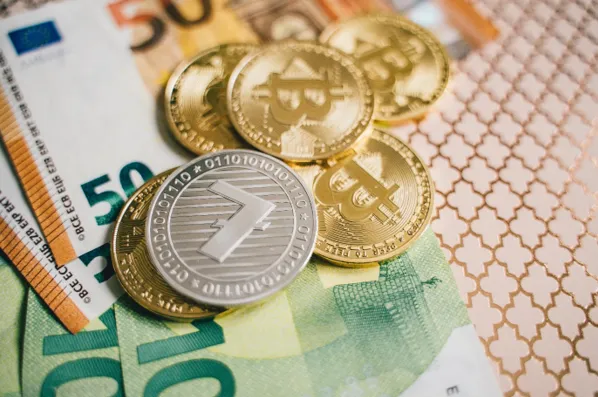
Lately, the discussions of blockchain and finance have been on the increase, evoking anticipation among people eager to see what this technology would spell for the future of money. Blockchain has gone beyond cryptocurrencies into banking, insurance and even supply chain management. In fact, the world spent over $12 million on blockchain in 2023, and predictions indicate that this year, the amount will reach a whopping $19 billion.
But why should this matter to you? Well, blockchain technology is not meant only for a few tech nerds or those who invest in cryptocurrency. In fact, it is fast proving to be a very important aspect of the economy, prepared to make changes to each and every financial process – from buying groceries to the most complex of things, such as retirement savings.
As more countries steadily adopt this technology, more people might become interested in digital tokens and invest in them. This would lead to changes in Bitcoin price, especially since the coins are only 21 million. Actually, a 2023 report showed that over 130 countries, representing 98% of the global economy, were exploring CBDCs, further showing that blockchain in finance is here to stay. Let’s look at the trajectory the finance sector will take now with blockchain in the picture.
Improved security
Money discussions can be difficult even with friends and family, especially if you feel like someone is out there ready to rob you. Such concerns are prevalent in this day and age since a bigger population wants to be careful of their money, bearing in mind that billions are lost to crime in cyberspace every year. In fact, it is estimated that the global economy will lose more than 20 trillion dollars due to cybercrimes by 2026. This is where blockchain technology steps into the picture, providing solutions that will leave you feeling financially secure.
Unlike traditional finance systems, which use central servers that can be vulnerable to hacking, blockchain’s decentralised nature ensures transaction records are distributed across a network of computers, making it nearly impossible to tamper with them. Plus, these transactions are cryptographically encrypted to prevent unauthorised access since only parties with the decryption key can access them. Actually, according to 58% of IT professionals, encryption is considered the most effective method for securing data.
Blockchain, aside from protecting transactions, supports smart contracts that revolutionise the whole process of making contracts between different parties, particularly those with monetary implications. The terms of the contract are directly written into code, and once the conditions are met, the agreement executes itself. For instance, following up with a client for payment after you have delivered a good or service, or vice versa, can be frustrating.
But with smart contracts, the hassle is significantly reduced because as soon as you meet your end of the deal as per the code, the actions that should follow, e.g., releasing payments, are automatically triggered. This makes the process cheaper and faster and reduces the chances of human error or fraud because it requires no middleman. Actually, the PwC 2016 FinTech report revealed that blockchain-based smart contracts can save companies as much as $10 billion each year by removing inefficiencies in financial services. In fact, a 2023 report showed that at least 42% of businesses using blockchain have noted an improvement in their security.
Accessibility
In the world today, almost 1.5 billion people remain unbanked, especially in developing countries, due to challenges with the economy or infrastructure. Blockchain-based financial innovations could probably be the solution to make banking services more accessible to them.
Through digital wallets and decentralised finance (DeFi) platforms, anyone with a smartphone and internet access can send or receive money, save money and even invest without needing a physical bank. For example, in India, where about 190 million people don’t have access to traditional banking, the country is adopting DeFi at one of the highest rates in the world, according to the 2023 Global Crypto Adoption Index.
Central Banking Digital Currencies are also rising as a way to make financial services more accessible but now in a safer and more controlled way. CBDCs are basically digital money issued and controlled by the government, making them seemingly more stable. By 2030, the Bank for International Settlements predicts that up to 15 retail (for everyday use) and nine wholesale (for large-scale transactions) CBDCs could be active. In fact, all the G20 countries are already working on them. As more countries join the CBDCs path, more people can have greater access to financial services in the digital world.
Efficiency
Blockchain has the potential to make your transactions more efficient by reducing costs and speeding them up. Because of the multiple intermediaries involved in traditional banking, transactions may take longer and be more costly as they move from one level of approval to another.
Blockchain does away with the middlemen by allowing peer-to-peer transactions that can be completed in minutes and at lower transaction costs, saving you time and money. This has been increasingly helpful in cross-border transactions, which can take up to 5 business days and high fees that can go up to 12.1% for sending $200 with banks. But now you can do same-day cross-border transactions, thanks to blockchain. Actually, 11% of all cross-border payments this year are estimated to be blockchain-enabled.
Conclusion
The future of blockchain in finance is seemingly transformative, offering more accessible, secure, cheaper and faster financial solutions. Financial institutions and governments are working together to overcome the few challenges arising with the technology in finance to make it even better for you.
As blockchain continues to revolutionise the financial world, it looks like it will soon be at your doorstep ready to shift how you do your things financially. Now, the question remains: Are you ready to be part of the blockchain financial revolution?